
Find Help
More Items From Ergsy search
-

Can fixed-rate tariffs offer better price stability compared to variable tariffs?
Relevance: 100%
-
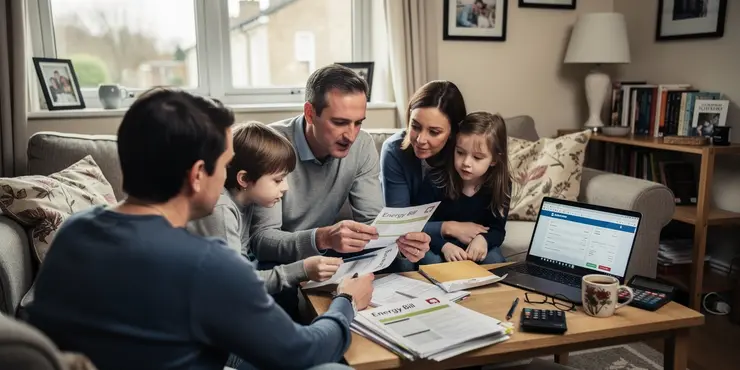
Does the energy price cap apply to all energy tariffs?
Relevance: 58%
-

Are green energy tariffs more expensive than standard tariffs?
Relevance: 54%
-
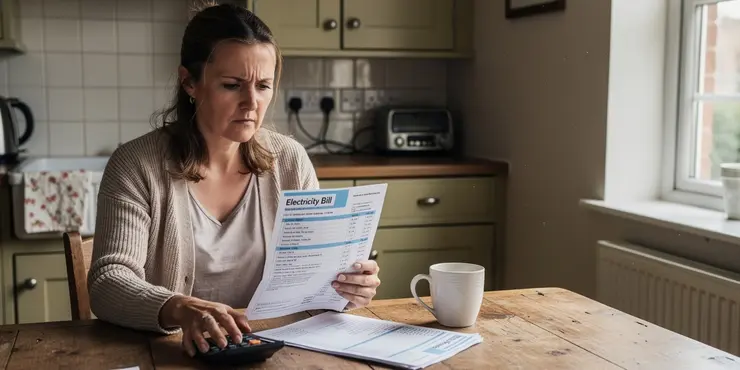
Do electricity tariffs vary within the same energy company?
Relevance: 49%
-

How does the energy price cap affect green energy tariffs?
Relevance: 49%
-

What are green tariffs?
Relevance: 45%
-

Is the energy price cap the same for everyone?
Relevance: 43%
-

Can I still save money by switching suppliers if the price cap is in place?
Relevance: 41%
-

Will the Trump Tariffs affect my business?
Relevance: 41%
-
Are energy prices regulated in the UK?
Relevance: 41%
-
Are prepayment electricity tariffs more expensive?
Relevance: 40%
-

What is the UK's energy price cap?
Relevance: 39%
-

What is the Energy Price Cap in the UK?
Relevance: 39%
-

Do all UK energy companies charge the same for electricity?
Relevance: 38%
-

What is the energy price cap?
Relevance: 38%
-

How does the energy price cap affect my energy bills?
Relevance: 37%
-

Do all UK energy companies cahrge the same for electricity
Relevance: 36%
-

Can energy suppliers charge less than the price cap?
Relevance: 36%
-

Can the energy price cap go down as well as up?
Relevance: 34%
-
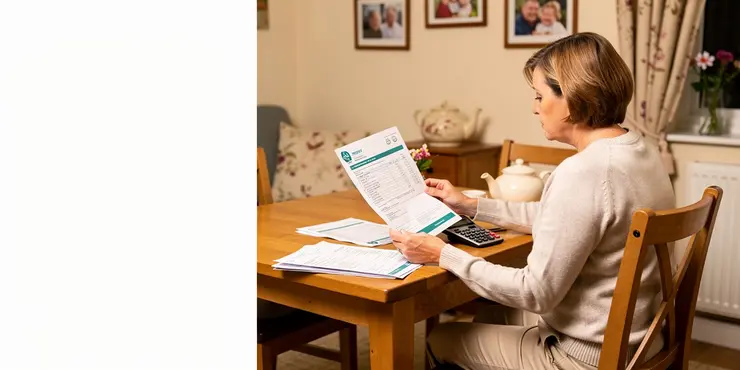
Does the energy price cap guarantee my total bill?
Relevance: 34%
-

Does the energy price cap apply to prepayment meters?
Relevance: 33%
-

How can I compare prices among different energy suppliers?
Relevance: 32%
-

When was the energy price cap introduced?
Relevance: 32%
-

Why was the energy price cap introduced?
Relevance: 32%
-

How is the energy price cap calculated?
Relevance: 32%
-

Where can I find more information about the energy price cap?
Relevance: 31%
-
Do energy suppliers offer discounts on electricity prices?
Relevance: 29%
-

What happens if my energy supplier charges above the price cap?
Relevance: 28%
-

What is a standard variable tariff, and how does it affect electricity pricing?
Relevance: 28%
-

How can I ensure I'm getting the best electricity deal in the UK?
Relevance: 28%
-

How often is the energy price cap reviewed?
Relevance: 28%
-
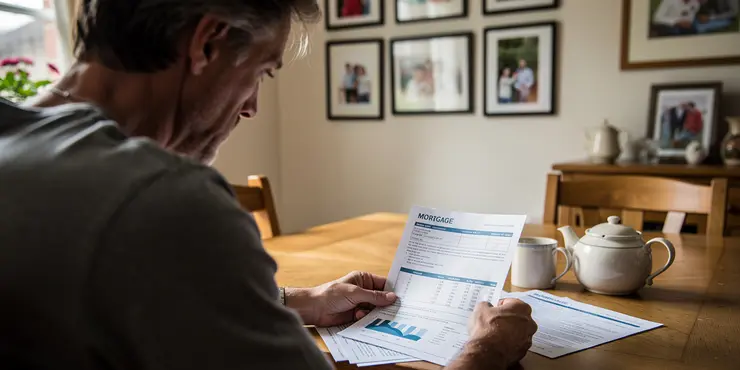
Will my fixed-rate mortgage payments change with interest rate fluctuations?
Relevance: 27%
-

How can I choose the right energy supplier?
Relevance: 27%
-

How often can I switch energy suppliers?
Relevance: 27%
-
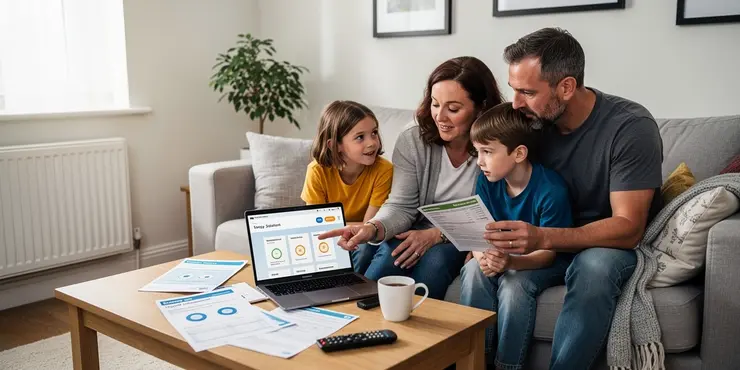
How can I choose the right energy supplier?
Relevance: 26%
-

How often do energy companies review their electricity prices?
Relevance: 26%
-

What should consumers consider when switching electricity suppliers?
Relevance: 25%
-
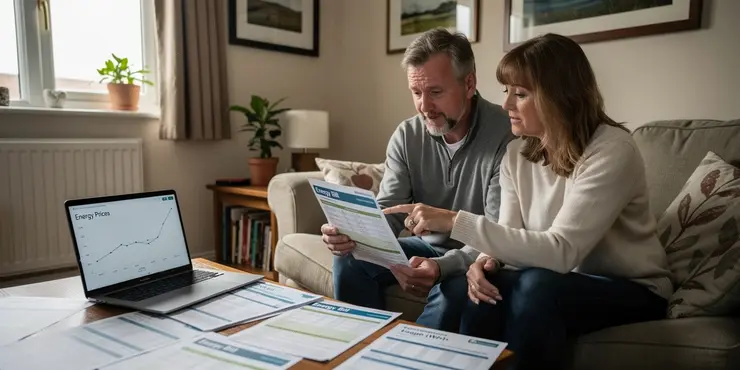
What is the difference between fixed and variable rate plans?
Relevance: 25%
-

What factors should I consider when choosing an energy supplier?
Relevance: 23%
-

Is the energy price cap being reviewed due to market changes?
Relevance: 23%
Understanding Tariff Types
In the UK energy market, consumers typically have the option to choose between fixed-rate tariffs and variable tariffs for their electricity and gas needs. Each type of tariff has its own set of advantages and disadvantages, impacting how households manage their energy bills and react to market fluctuations. Understanding these differences is crucial for making informed decisions about energy consumption and budgeting.
What is a Fixed-Rate Tariff?
A fixed-rate tariff offers consumers a predetermined rate for energy consumption that remains constant over a specified contract period, typically one to two years. This means that the unit price of electricity or gas will not change, regardless of shifts in the wholesale energy market. Consequently, households can benefit from predictable costs, assisting in managing budgets more effectively.
Advantages of Fixed-Rate Tariffs
The primary advantage of a fixed-rate tariff is price stability. Consumers are protected from unexpected price hikes due to market volatility, which can be particularly beneficial during periods of rising energy prices. It allows households to plan their finances without the uncertainty associated with fluctuating energy costs. Additionally, fixed-rate tariffs can provide peace of mind, knowing that energy bills will not suddenly increase over the contract term.
What is a Variable Tariff?
In contrast, variable tariffs can change in price according to market conditions and regulatory changes. These tariffs are often tied to the wholesale cost of energy, meaning that if market prices fall, consumers might benefit from reduced rates. However, if prices increase, so will the rates charged to customers. This flexibility can benefit those who closely monitor energy trends and are willing to adjust their consumption accordingly.
Comparing Price Stability
When comparing fixed-rate tariffs with variable tariffs regarding price stability, fixed-rate plans generally offer more certainty. With energy markets often subject to geopolitical events and supply chain disruptions, fixed rates shield consumers from sudden increases that could strain household budgets. This stability can be particularly advantageous for low-income households or those with strict budgeting constraints.
Considerations for Choosing a Tariff
While fixed-rate tariffs provide stability, they may not always be the cheapest option, especially if market prices fall significantly during the contract period. Therefore, consumers must weigh the importance of price predictability against potential cost savings that could arise from a variable tariff. Additionally, it’s essential to consider any exit fees associated with leaving a fixed-term contract early, as these can offset potential savings from switching tariffs.
Conclusion
In summary, fixed-rate tariffs offer significant benefits in terms of price stability compared to variable tariffs, providing certainty in household budgeting. However, individual circumstances and risk tolerance should guide the choice of tariff. Consumers are advised to evaluate current market trends, personal energy needs, and financial constraints when making their decision.
Understanding Tariff Types
In the UK, people can choose how they pay for electricity and gas. There are two choices: fixed-rate tariffs and variable tariffs. Each choice has good and bad points. Understanding these can help you decide the best way to pay for energy and how to plan your money.
What is a Fixed-Rate Tariff?
A fixed-rate tariff means you pay the same amount for electricity or gas for a certain time, like one or two years. The price does not change even if the market changes. This helps you know how much your energy bills will be, so you can plan your money better.
Advantages of Fixed-Rate Tariffs
The main good thing about fixed-rate tariffs is that the price stays the same. This means no surprise price increases. This is helpful when energy prices go up. It makes it easier to plan your money because you know what your bills will be. You also feel calm because your bills won’t suddenly go up.
What is a Variable Tariff?
Variable tariffs can change in price. The cost might go up or down based on what is happening in the market. If energy prices go down, you might pay less. But if prices go up, you will pay more. This type is good for people who watch market prices closely and can change how they use energy.
Comparing Price Stability
Fixed-rate tariffs usually offer more price stability than variable tariffs. Energy market prices can change suddenly because of world events. Fixed-rate tariffs protect you from these changes, which helps if you have a small budget to work with.
Considerations for Choosing a Tariff
Fixed-rate tariffs give you stable prices, but they might not be the cheapest if market prices drop a lot. You need to think about whether stable prices or saving money is more important to you. Also, check if there are fees for leaving a fixed-rate tariff early. These fees can affect how much you save.
Conclusion
In short, fixed-rate tariffs help keep energy bills stable, but variable tariffs might save you money if prices drop. It’s important to think about your situation and decide what works best for you. Look at market trends, your energy needs, and your money situation before choosing.
Frequently Asked Questions
What is a fixed-rate tariff?
A fixed-rate tariff is an energy plan where the price per unit of energy remains constant for the duration of the contract.
What is a variable tariff?
A variable tariff is an energy plan where the price per unit of energy can fluctuate based on market conditions and other factors.
Do fixed-rate tariffs offer better price stability than variable tariffs?
Yes, fixed-rate tariffs offer better price stability because the cost per unit of energy does not change throughout the contract period.
Why might someone choose a fixed-rate tariff?
Someone might choose a fixed-rate tariff to have predictable energy costs and protect against future price increases in the energy market.
What are the downsides of a fixed-rate tariff?
The downsides of a fixed-rate tariff include potentially missing out on savings if market prices fall and being locked into a contract even if you want to switch.
Can variable tariffs be more expensive than fixed-rate tariffs?
Yes, if market conditions cause energy prices to rise, variable tariffs can become more expensive than a fixed-rate tariff.
Are fixed-rate tariffs immune to all price changes?
While the rate per unit is fixed, the overall bill may still change based on energy consumption or changes in government tariffs or levies.
What happens if energy prices fall while on a fixed-rate tariff?
If energy prices fall, a customer on a fixed-rate tariff may pay more than if they were on a variable tariff.
How long do fixed-rate tariffs typically last?
Fixed-rate tariffs can last anywhere from 6 months to 3 years, depending on the contract terms.
Can you switch from a fixed-rate to a variable tariff?
Yes, but there may be early termination fees if you switch before the fixed-rate contract ends.
Are fixed-rate tariffs suitable for all consumers?
Fixed-rate tariffs can be suitable for consumers seeking price stability, but may not be ideal for those who can capitalize on falling energy prices.
Do fixed-rate tariffs protect against all charges?
No, they usually protect against changes in the unit price of energy, but not necessarily other charges such as standing charges.
How does the stability of fixed-rate tariffs provide financial planning benefits?
Fixed-rate tariffs allow for more accurate budgeting and less uncertainty in household or business financial planning.
Do fixed-rate tariffs lock you into a supplier?
Yes, fixed-rate tariffs often involve a contract with a specific supplier for the duration of the fixed term.
What should be considered when choosing between fixed and variable tariffs?
Consider energy market trends, personal financial stability, future price expectations, and the potential for savings or costs.
Is there a penalty for leaving a fixed-rate tariff early?
Yes, there is often a termination fee for ending a fixed-rate contract early, though this varies by supplier.
Are there any government protections for those on variable tariffs?
Some regulations may cap price increases, but they do not offer the same level of protection as a fixed-rate contract.
How frequently do prices change in a variable tariff?
The frequency can vary depending on market conditions and the specific terms set by the energy supplier.
Can businesses also benefit from fixed-rate tariffs?
Yes, businesses can benefit from fixed-rate tariffs as they offer stability in operating costs, which is critical for financial forecasting.
What external factors can affect variable tariff prices?
Factors such as fuel prices, political situations, supply and demand, and environmental policies can affect variable tariff prices.
What is a fixed-rate tariff?
A fixed-rate tariff means the price you pay stays the same. It does not change. Your bills will be more predictable. No surprises!
Here are some helpful tips:
- Ask someone to help if you need it.
- Use pictures to understand better.
- Look at videos that explain tariffs.
A fixed-rate tariff is an energy plan. This means the price you pay for energy stays the same for the whole contract time.
What is a variable tariff?
A variable tariff means the cost of something, like gas or electricity, can change. Sometimes it might cost more, and other times it might cost less.
To help understand this better, you can:
- Use pictures or diagrams to see how prices go up and down.
- Ask someone to explain it to you using simple words.
- Look for videos that talk about variable tariffs in a fun way.
A variable tariff is an energy plan. The price you pay for each unit of energy can change. It can go up or down depending on what is happening in the market and other things.
Is a fixed-rate plan more stable in price than a variable plan?
Some helpful tips:
- Fixed-rate plan: The price stays the same each time.
- Variable plan: The price can change each time.
When choosing a plan, think about what makes you feel better. Do you like knowing the price will not change? Then a fixed-rate plan might be good for you.
You can ask for help. Talk to someone you trust or use an online price calculator tool. These can help you understand the plans better.
Yes, fixed-rate plans keep energy prices the same. This means the cost of energy won't change while your plan lasts.
Why pick a fixed-rate plan?
A fixed-rate plan means the price you pay stays the same. Here are some reasons why this might be good:
- No Surprises: You know how much you will pay each time. The price won't go up, even if other things do.
- Easy to Plan: It helps you plan your money because the cost stays the same.
- Feel Safe: It can make you feel safe because you know what to expect.
Here are some tools that can help you understand:
- Pictures: Use pictures to help explain ideas.
- Support Person: Talk to someone who can help you understand.
- Videos: Watch videos that explain the idea.
People choose fixed-rate plans to keep energy bills the same every month. This helps them know what they will pay and stops surprise price jumps later.
What are the bad things about a fixed-rate plan?
Fixed rate tariff problems are:
You might not save money if prices go down. You're stuck in a contract even if you want to change.
Can changing energy prices cost more than fixed prices?
Yes, if prices for energy go up, a variable tariff can cost more money than a fixed-rate tariff.
Do fixed-rate plans stay the same price, no matter what?
The price for each unit of energy stays the same. But, your total bill can change. This can happen if you use more or less energy. It can also change if the government changes some charges.
What happens if energy prices go down and you have a fixed-rate plan?
If the cost of energy goes down, people who pay the same price every time (fixed-rate) might spend more money than people who have bills that change (variable tariff).
How long do fixed-rate energy plans last?
A fixed-rate energy plan usually lasts for 1 to 2 years.
With this plan, your energy price stays the same for that time.
If you need help understanding this, ask someone you trust.
Fixed-rate plans can last from 6 months to 3 years. It depends on the contract you have.
Can you change from a fixed price to a changing price for your bills?
Yes. But if you leave early, you might have to pay money because the contract has not finished yet.
Is a Fixed-Price Energy Plan Good for Everyone?
Fixed-rate plans are good if you want your costs to stay the same. They are not as good if you want to pay less when energy gets cheaper.
Do fixed-rate plans stop all extra charges?
No, they usually protect against changes in the energy price, but not other charges like standing charges.
How can fixed-rate tariffs help with money planning?
Fixed-rate plans help people and businesses plan their spending better. They make it easier to know how much money they will need, so there is less worrying about surprises.
Do Fixed-Rate Plans Keep You with One Company?
A fixed-rate plan means you pay the same price for energy for a set time.
If you choose this plan, you might need to stay with the same company until the plan ends.
Here’s how to understand it better:
- Fixed-rate: The price you pay stays the same.
- You may have to pay a fee if you leave early.
- Check the terms so you know how long you need to stay.
Some tips to help:
- Ask someone you trust to explain the plan.
- Use a calendar to mark the end date of your plan.
- Look for videos or pictures that explain fixed-rate plans.
Yes, a fixed-rate plan is like a promise. You agree to stay with the same company for a set time.
What to think about when picking between fixed and variable tariffs
Think about a few things:
- What's happening with energy prices?
- Is your money in a good place right now?
- Do you think prices will go up or down later?
- Can you save money, or will it cost more?
Try using pictures or charts to help understand the information better. Also, talking to someone who knows about this can be really helpful.
Do you have to pay if you leave a fixed-rate plan early?
If you want to leave your fixed-rate plan before it ends, you might have to pay a fee. This fee is called a penalty.
You can:
- Check with your energy company. They will tell you if there is a fee.
- Look in your contract. The contract will say if there is a penalty and how much it is.
Helpful tools:
- Ask someone to read the information with you.
- Use a calculator to help with any numbers.
Yes, there is usually a fee if you stop a contract early. This fee is called a termination fee, and it can change depending on who your supplier is.
Does the government help people with changing energy prices?
Some rules can stop prices from going up too much, but they are not as safe as a deal where the price stays the same.
If reading is tricky, you can try using a ruler or your finger to guide you as you read. Audiobooks or text-to-speech tools can also help by letting you listen to the text.
How often do prices change in a variable tariff?
In a variable tariff, prices can change a lot. This means they can go up or down. It might happen every month or every few months. Companies like to change prices to match how much things cost.
Helpful tools:
- Pictures: Use pictures to show when prices go up or down.
- Colors: Use different colors for when prices go up (red) or go down (green).
- Simple charts: Use simple charts to show price changes over time.
How often it happens can change. It depends on what is going on in the market and the rules set by the energy company.
Can businesses save money with fixed-rate plans?
A fixed-rate plan is when you pay the same amount every time. This can help businesses with budgeting.
Here is why fixed-rate plans can be good:
- No surprise bills: Pay the same amount each time.
- Easy planning: Know how much to save for bills.
Use tools like a calculator or apps to track spending. Ask someone to help if you have questions.
Yes, businesses can find fixed-rate tariffs helpful. These tariffs keep costs the same, so it's easier to plan and budget for the future.
What things outside can change the cost of variable tariffs?
Things like the cost of fuel, government rules, how many people want something, and the environment can change how much you pay in tariffs.
Useful Links
This website offers general information and is not a substitute for professional advice.
Always seek guidance from qualified professionals.
If you have any medical concerns or need urgent help, contact a healthcare professional or emergency services immediately.
Some of this content was generated with AI assistance. We’ve done our best to keep it accurate, helpful, and human-friendly.
- Ergsy carfully checks the information in the videos we provide here.
- Videos shown by Youtube after a video has completed, have NOT been reviewed by ERGSY.
- To view, click the arrow in centre of video.
- Most of the videos you find here will have subtitles and/or closed captions available.
- You may need to turn these on, and choose your preferred language.
- Go to the video you'd like to watch.
- If closed captions (CC) are available, settings will be visible on the bottom right of the video player.
- To turn on Captions, click settings .
- To turn off Captions, click settings again.
More Items From Ergsy search
-

Can fixed-rate tariffs offer better price stability compared to variable tariffs?
Relevance: 100%
-

Does the energy price cap apply to all energy tariffs?
Relevance: 58%
-

Are green energy tariffs more expensive than standard tariffs?
Relevance: 54%
-

Do electricity tariffs vary within the same energy company?
Relevance: 49%
-

How does the energy price cap affect green energy tariffs?
Relevance: 49%
-

What are green tariffs?
Relevance: 45%
-

Is the energy price cap the same for everyone?
Relevance: 43%
-

Can I still save money by switching suppliers if the price cap is in place?
Relevance: 41%
-

Will the Trump Tariffs affect my business?
Relevance: 41%
-
Are energy prices regulated in the UK?
Relevance: 41%
-
Are prepayment electricity tariffs more expensive?
Relevance: 40%
-

What is the UK's energy price cap?
Relevance: 39%
-

What is the Energy Price Cap in the UK?
Relevance: 39%
-

Do all UK energy companies charge the same for electricity?
Relevance: 38%
-

What is the energy price cap?
Relevance: 38%
-

How does the energy price cap affect my energy bills?
Relevance: 37%
-

Do all UK energy companies cahrge the same for electricity
Relevance: 36%
-

Can energy suppliers charge less than the price cap?
Relevance: 36%
-

Can the energy price cap go down as well as up?
Relevance: 34%
-

Does the energy price cap guarantee my total bill?
Relevance: 34%
-

Does the energy price cap apply to prepayment meters?
Relevance: 33%
-

How can I compare prices among different energy suppliers?
Relevance: 32%
-

When was the energy price cap introduced?
Relevance: 32%
-

Why was the energy price cap introduced?
Relevance: 32%
-

How is the energy price cap calculated?
Relevance: 32%
-

Where can I find more information about the energy price cap?
Relevance: 31%
-
Do energy suppliers offer discounts on electricity prices?
Relevance: 29%
-

What happens if my energy supplier charges above the price cap?
Relevance: 28%
-

What is a standard variable tariff, and how does it affect electricity pricing?
Relevance: 28%
-

How can I ensure I'm getting the best electricity deal in the UK?
Relevance: 28%
-

How often is the energy price cap reviewed?
Relevance: 28%
-

Will my fixed-rate mortgage payments change with interest rate fluctuations?
Relevance: 27%
-

How can I choose the right energy supplier?
Relevance: 27%
-

How often can I switch energy suppliers?
Relevance: 27%
-

How can I choose the right energy supplier?
Relevance: 26%
-

How often do energy companies review their electricity prices?
Relevance: 26%
-

What should consumers consider when switching electricity suppliers?
Relevance: 25%
-

What is the difference between fixed and variable rate plans?
Relevance: 25%
-

What factors should I consider when choosing an energy supplier?
Relevance: 23%
-

Is the energy price cap being reviewed due to market changes?
Relevance: 23%


